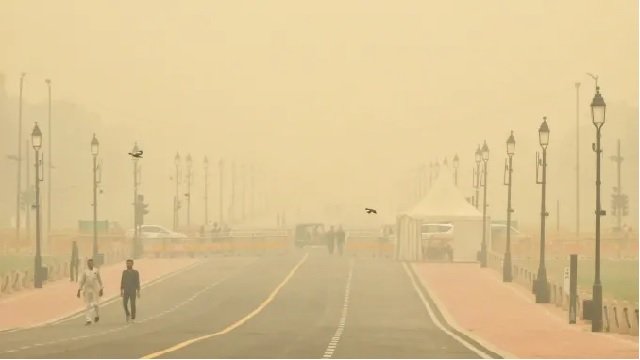“Slow Poison”: Air Pollution’s Deadly Impact on India
Air pollution has become a silent but deadly “slow poison” in India, causing a wide range of health issues, from low birth weight to damage in various organs, mental health problems, and a surge in diseases. A major study published in 2020 in the Lancet Planetary Health revealed that pollution is the “largest existential threat” to humans globally, responsible for over nine million deaths annually.
Disturbingly, air pollution claims more lives in India than anywhere else, with 1.67 million deaths in 2019, accounting for 17.8% of all deaths that year. The nation had the highest average particulate matter concentration in the world at 70.3 micrograms per cubic meter in 2019. Fast forward to 2023, and Delhi’s Air Quality Index (AQI) surged past 500, a shocking 100 times higher than the healthy limit set by the World Health Organization.
The Air Quality Life Index (AQLI) for 2023 by the University of Chicago’s Energy Policy Institute indicated that air pollution in Delhi shortens lives by 11.9 years. The impact on life expectancy is significant, with PM2.5 pollution taking 5.3 years off the average Indian’s life, surpassing cardiovascular diseases (4.5 years) and child and maternal malnutrition (1.8 years).
Dr. Dhiren Gupta of Sir Ganga Ram Hospital characterizes air pollution as a “slow poison” with far-reaching consequences, affecting the unborn, newborns, and individuals of all ages. It results in poor birth weight, allergies, heart problems, lung damage, and more, particularly impacting children. Young children, in particular, face heightened risks due to their size and faster respiratory rate.
Children under five suffer the most, with nearly 12 deaths per hour in India attributed to air pollution, as per a 2016 WHO report. In 2016, over 101,000 children under the age of five died prematurely due to air pollution, with nearly seven children succumbing to outdoor air pollution every hour in India, over half of them being girls.
Vulnerable groups also include people over 60 and those with preexisting medical conditions. Recent studies have linked air pollution to diabetes and antibiotic resistance, both serious problems in India. While short-term solutions like construction stoppages and school closures are implemented each year, lasting measures are crucial, such as reducing stubble burning, adopting cleaner energy sources, and enforcing stricter industrial emission regulations.
For now, wearing N95 masks, adhering to regular medications, avoiding outdoor activities during peak pollution hours, maintaining a balanced diet, and seeking medical help for worsening symptoms are essential survival strategies.




